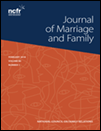Assistant Professor, Department of Methodology
London School of Economics
Heading 1
Research
My research examines how couples and colleagues value and reward each other's paid and unpaid work, and how this produces gender inequalities in the institutions of family and work. A key line of my research focuses on how periods of not working are infused with ideas of morality around who should do paid work and who is exempt from it. Central to this is my book manuscript, Crunch Time: How Married Couples Confront Unemployment, published by the University of California Press (2020), which examines involuntary unemployment. By using in-depth and innovative data I develop sociological understandings of how interactions in the intimate realm of the home encourage the reproduction of gender norms rather than dismantling them.
I am currently working on three key lines of research:
1) A collaborative, interdisciplinary and multi-method project on the links between diversity and productivity in the UK titled "Diversity and Productivity: From Education to Work." For this project, our team has been awarded a £2 million grant from the ESRC from 2022-2025.
2) A project on job-searching in the UK which focuses on the the various different participants who comprise the labour market, including labour market brokers like recruiters, headhunters and career coaches, job-seekers, and employers.
3) A collaborative, multi-method project with colleagues at the LSE on discrimination in online labour markets. This project has received internal funding from the LSE, as well as funding from the BA/Leverhulme Small Research Grants Awards.
Recent articles

Relational work in the family: the gendered microfoundation of parents' economic decisions

The ideal job-seeker norm: unemployment and marital privileges in the professional middle-class
